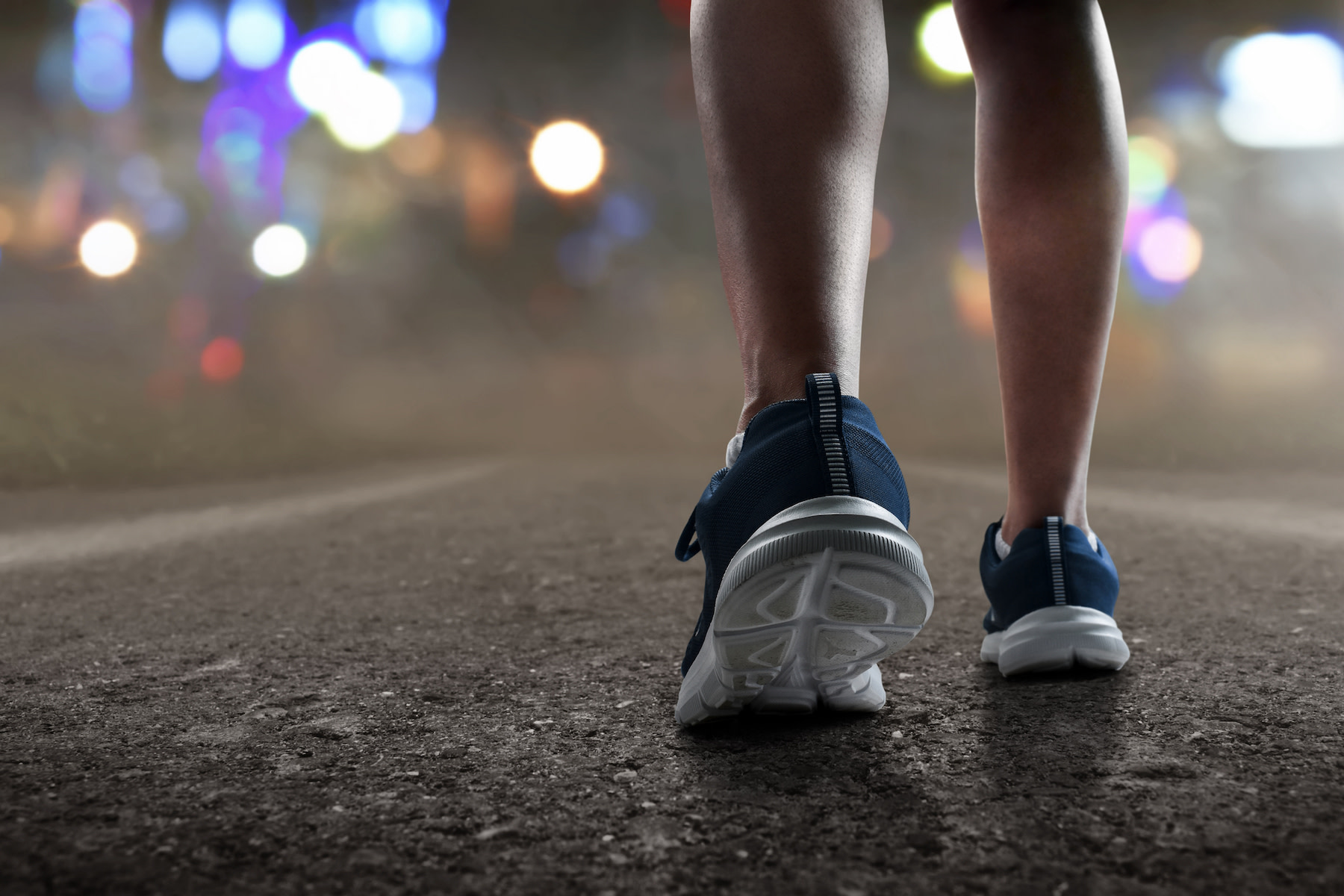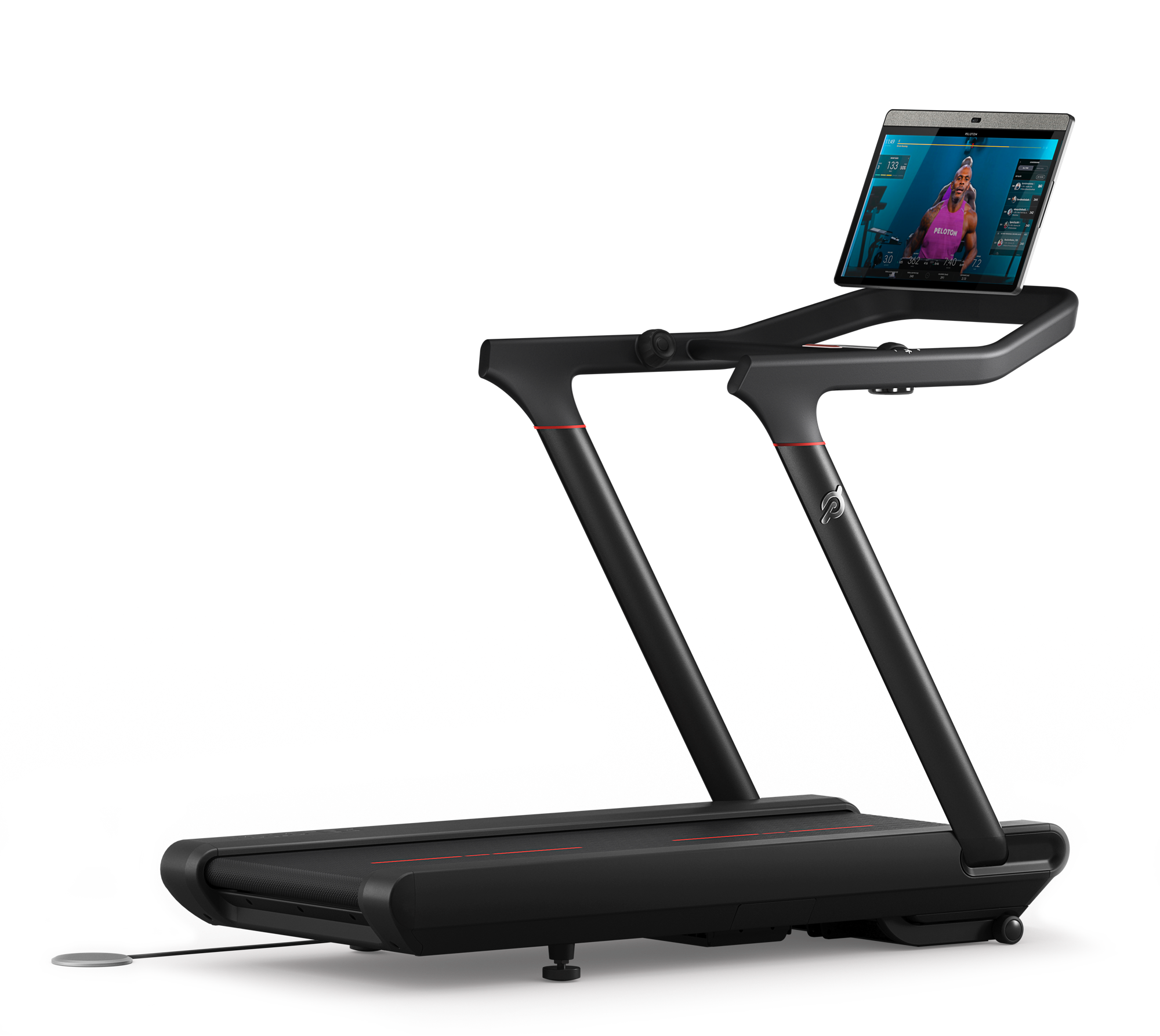
Lear Miller Photo / Image Source via Getty Images
Should You Run at Night? Here’s What to Consider
There are pros and cons to working out in the evening. Let's break it down.
By Anna Medaris•
The Benefits of Running at Night
How Late at Night Can You Run?
Does Running at Night Impact Your Performance?
Top Tips and Considerations for Running at Night
Mariana Fernández isn’t a morning runner—or an evening runner. The New York City-based Peloton instructor likes to say she’s a “middle of the pack and middle of the day” exerciser, often dashing out of her Central Park-adjacent apartment around lunchtime for a jog.
But sometimes, Mariana is slated to teach nighttime classes or needs to squeeze in an evening run while training for a race. When training for the New York City marathon in 2023, for instance, she found running at night has pros and cons.
“The energy in the park is different” after the 9-to-5 workday, Mariana says. “It fed me in a different way, unexpectedly, even though I still like my middle-of-the day runs. It was nice to try.”
Indeed, experts say there are different considerations to make when planning later-in-the-day runs, including how to fuel, their impact on your sleep, and safety concerns. But by and large, no one time of day is best for everyone. What matters most is finding a time you like to run—and sticking to it, says Todd Miller, PhD, associate professor of exercise and nutrition sciences at the George Washington University’s Milken Institute School of Public Health.
“Exercise is such an individualized thing—not only just the adaptation to it, but also the psychological aspect,” he says. “If I just hate running at night, I’m not gonna run at night, no matter how good it is for me.”
But if you love running at night, or want to give it a shot, here’s what to know.
The Benefits of Running at Night
Unlike a run first thing in the morning, later runs can mean looser limbs and less-stiff joints, Mariana says. ”It takes a different kind of warm-up if running is one of the first activities you’re doing, versus if you've had your day, you have some mobility, so that the body feels a little warmer in general,” she says.
Knowing your day is closing with a run can also make you more diligent about eating and hydrating well throughout the day, Mariana adds.
There’s a mental and emotional factor too. “I’ve found that no matter what kind of day you've had, a run later on in the day lets you separate a little bit from it,” Mariana says. Releasing any stress through exercise is healthier than, say, going to happy hour, and can help prevent you from ruminating once you hit the hay.
There’s also some research showing potential physiological advantages to PM workouts. A 2022 study in the journal Diabetologia found that afternoon workouts (between noon and 6 PM) and nighttime workouts (6 PM to 12 AM) reduced insulin in participants by 18 and 25 percent, respectively, compared with participants whose activity was more evenly spaced throughout the day. The morning exercisers (6 AM to 12 PM) in the study didn’t see any changes in their insulin resistance when compared with the group who moved throughout the day.
This could be related to the idea that the timing of your workout influences your circadian rhythm, which then improves your sleep and, in turn, your metabolic health, the study authors note. These findings could be especially important for people with or at risk for type 2 diabetes.
Another potential metabolic benefit comes from the thermic effect of food, or essentially the concept that you burn calories as you digest your meals, says Miller, also a certified strength and conditioning specialist.
“If you're going to eat dinner at 5 PM or 6 PM, and then go out and run, you're gonna get a greater thermic effect from that meal if you exercise afterward,” he says. “I suppose that's one metabolic benefit, from a caloric burn standpoint.” But, he adds, those benefits are minor enough that they’re not worth changing an existing routine that works for you to achieve.
How Late at Night Can You Run?
What constitutes a “late” run is subjective. For the 4,800 runners who completed the 2023 New York Road Runners’ Midnight Run, 11:59 PM is fair game. For Mariana, “if the sun goes down, I’m not running at night,” she says, or at least not outside at night. That’s because safety is key.
“Men, women, anyone—just be aware of your surroundings, wherever you are, whether it's a densely-packed city like New York or even my parents’ quiet neighborhood in San Diego where I could have the streets to myself,” she says. “You don't want to get too distracted or get lost in your music because you have to have that awareness.”
Sleep is another consideration when debating “how late is too late.” One 2023 study in the journal Cureus found that 90 minutes or more of moderate-to-vigorous exercise in the evening was associated with poorer sleep quality. The researchers suggest people finish their workouts a whopping four hours before bedtime.
However, you might not have to wait that long if your exercise sessions are shorter and less intense, says Shelby Harris, PsyD, a licensed clinical psychologist in private practice in White Plains, New York, who specializes in behavioral sleep medicine.
Other research suggests exercise benefits sleep—whether you do it in the morning or at night. One small 2024 study in the Journal of Sleep Research looked at 13 recreational runners who were assigned to run either 45 to 60 minutes within two hours of waking or two and half hours before going to bed. Compared to their rest days, both groups spent more time in non-REM sleep, a critical sleep phase for tissue repair.
“One common misconception is that exercising at night always ruins sleep, but it’s more about timing and intensity,” says Harris, author of The Women’s Guide to Overcoming Insomnia and director of sleep health at Sleepopolis. “Moderate evening workouts can be fine for most people.”

FOTOKITA / iStock / Getty Images Plus
Does Running at Night Impact Your Performance?
If your aim is to maximize performance gains, there may be some slight advantages to running at night.
For instance, one 2023 meta-analysis in the Journal of Strength and Conditioning Research found endurance exercisers, such as runners, reported a longer “time to exhaustion” when working out at night versus the morning. In other words, you’re more likely to be able to run longer at night than in the morning—even at the same intensity.
While it’s unclear why that is, “there could be some mental thing going on at night that allows you to be able to tolerate that exercise for a longer period of time,” Miller says. “So if your goal is for an activity to feel less fatiguing, it seems like you should be doing it at night.”
Other research has shown that muscles seem to have a circadian rhythm similar to the sleep-wake cycle, which tends to make you strongest in the afternoon and evening. In that way, saving your runs for the night might allow you to capitalize on your boosted strength—and get stronger faster in the process.
On the other hand, if your later workouts are negatively affecting your sleep, which is also critical for recovery and muscle-building, you’ll likely cancel out that potential boost.
Top Tips and Considerations for Running at Night
1. Time Your Meals and Sleep Accordingly
If you run too hard too close to bedtime, you’ll raise your heart rate, body temperature, and make it hard to fall asleep, Harris says. “Try to finish up a couple of hours before bedtime to give your body time to cool down and relax for better sleep,” she suggests.
Similarly, you don’t want to eat too close to bedtime—or run on a full stomach. So, try, for example, to have an early dinner three to four hours before your later evening workout, and a light snack (like hummus and pretzels) afterwards, experts recommend. Or you could have a light snack one to two hours before an earlier evening workout and a meal post-run.
2. Be Consistent
In the 2023 meta-analysis, the study authors also found that exercisers’ heart rates were higher at night, despite the same workout intensity. So if you’re relying on heart rate—which generally gets lower the fitter you are—to monitor your progress, it’s important to take into account time of day, Miller says.
“If you're running a fixed exercise distance or a fixed intensity at different heart rate values, that's going to be very confusing in terms of your progress,” he says.
Consistency can also be helpful to solidify a routine and support your sleep, Harris says. “If you're sticking to nighttime workouts, make it a regular habit,” she says. “Just listen to your body and adjust if you notice it's affecting your sleep negatively.”
3. But Switch It Up When Necessary
There’s a caveat to the consistency advice: If you’re a nighttime runner training for a morning race, it’s important to plan some workouts at times that replicate race day. Just like you (hopefully) wouldn’t race on new shoes or with new fuel, “give yourself the opportunity [to run in the morning] because you’ll see how your body functions so much differently,” Mariana says.
Switching it up can also help you break out of a rut or a training plateau, she adds.
4. Prioritize Safety
If you’re running outside at night, it’s critical to be aware of your surroundings, wear reflective gear (and/or a headlamp), and ideally run with others, Mariana says. Otherwise, “you're just not visible, or you can't even see a pothole if it's in front of you,” she says. “Be really mindful and cognizant of your safety.” If the situation feels unsafe, opt to go for a run on the treadmill instead. (Just one reason many choose to do evening rides on the Peloton Tread.)

Peloton Treadmills
Two treadmills. One Peloton experience.
5. Be Deliberate About Your Wind-Down Routine
A good run can leave you wired, which isn’t an ideal recipe for sleep. That’s why Harris and Mariana recommend a deliberate relaxation routine that includes deep breathing and stretching before you go to sleep.
“There have been times after evening runs, and especially if I've done a night race, where my energy is just on another level,” Mariana says. “I recommend taking a warm shower or bath to help relieve that. Otherwise, I'll be in bed with my eyes wide open.”
Related Articles

Health
The Pros and Cons of Working Out Twice a Day—and How to Do It Without Burning Out

Nutrition
How to Replenish Electrolytes—and 6 Signs You May Need To

Member News
You Can Now Run the TCS New York City Marathon Course on Peloton Tread and Tread+

Stretching + Mobility
The 90/90 Stretch Will Open Up Your Hips—and Increase Your Mobility
This content is for informational and educational purposes only and does not constitute individualized advice. It is not intended to replace professional medical evaluation, diagnosis, or treatment. Seek the advice of your physician for questions you may have regarding your health or a medical condition. If you are having a medical emergency, call your physician or 911 immediately.
Explore Peloton Treads
Level up your inbox.
Subscribe for a weekly dose of fitness, plus the latest promos, launches, and events.
By providing your email address, you agree to receive marketing communications from Peloton.
For more about how we use your information, see our Privacy Policy.





